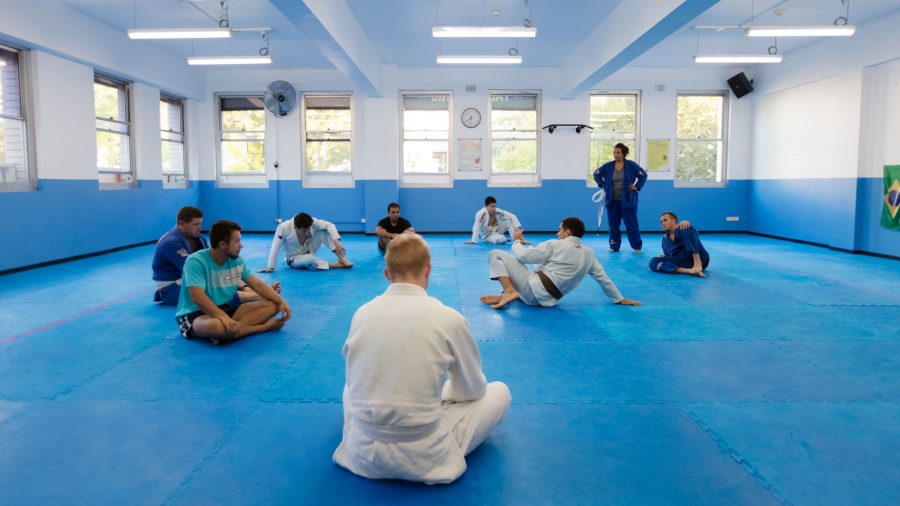Jiu Jitsu: Friend or Foe?
You train as a way to have fun, and be healthy. It can also be a way to avoid stress, pain, and discomfort.
But jiu jitsu cannot be fooled. It infiltrates every part of your life, and mirrors your thoughts, feelings, and emotions, as you interact, and train, and treat people both on the mats, and off.
Jiu Jitsu is Protection
You possess habits that have been laid down from way back. The big, strong bully at school becomes the white belt hunter on the mats. If someone told you as a kid to harden up, stop crying, and go harder, you may now be the incessant mat rat who just can’t get enough of a beat down to rest a little. You may feel like it’s “soft” not to train so hard and go easy. Only wimps flow roll, or so you may think.
Jiu Jitsu as a Drug
Some people over train to kill stress. Some people tap way too late because they’re just used to being in pain and suffering. Behaviours can be like a drug: they give you a “quick hit”, maybe make you feel good briefly, and/or help you numb out or avoid things.
Take Charge
If jiu jitsu isn’t helping you be a better person, and if it isn’t to the benefit of the people around you, it may be time to think about why, and/or how you do jiu jitsu.
You don’t need to call the shrink every time you get frustrated on the mats. But you can address those factors that push you to fall into patterns that are holding you back from relishing your journey to the fullest.
Monkey See, Monkey Do
Environment trumps willpower. Sometimes you can fall into habits almost by default. That’s why the culture within your academy will have a huge bearing on how you approach your training.
Expectations, and ways of doing jiu jitsu will transcend from your instructor, it will trickle down along the senior students and eventually to everyone else.
Some academies seek excellence via high performance. Here you may be chastised for not living in the gym, and God forbid you do not want to compete. Others believe that medals aren’t worth the plastic they’re usually made with.
Small Adjustments
Moshe Feldenkrais said, “if you know what you’re doing you can do whatever you want”.
You want to build quality of life through jiu jitsu. So then let your jiu jitsu journey be one about ongoing learning, an exploration of mechanics, and the search for balance in all areas of your life.
- It’s your responsibility to communicate with those around you about your intentions for practicing. Take the time to chat with your partners and instructors and let them know what you want from your training.
- Be mindful of your training partners. If you always start fighting instead of flowing, perhaps you can choose some beginners or less aggressive students to work with instead.
- If relationships at home are suffering because of jiu jitsu, it’s time to have many conversations with those you love. Let them in on your vision, and what jiu jitsu means to you. Jiu jitsu can co-exist with the rest of life. One conversation isn’t enough. You need to keep talking, and keep discussing along the way.
It’s Up to You
The beautiful thing about jiu jitsu is that you can use it as you choose. The important thing is that you’re true to yourself and to the real reasons for why you do jiu jitsu. When your true intentions and your ways of doing jiu jitsu align, sparks fly, till it explodes into one big bundle of endless joy and fulfilment.
Like this, jiu jitsu becomes the all-encompassing, ever improving source of fun, and self-improvement. You leave class with a smile on your face. You can wake up the next morning feeling better, not battered. And you acknowledge that you’re a part of something bigger than yourself. You’re on an ongoing path of learning, alongside people you love, and trust.
Which way works best for you?



